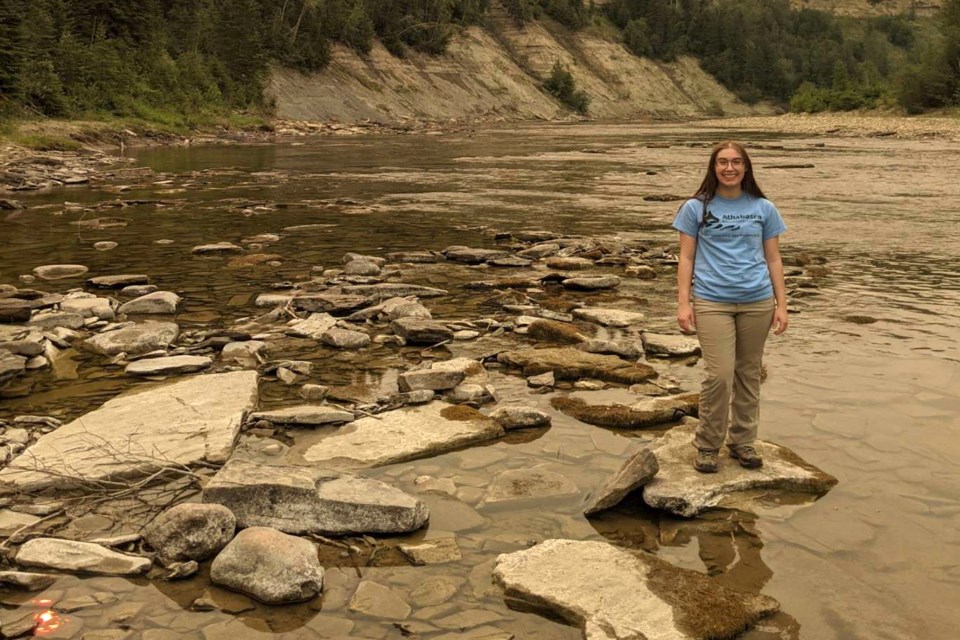ATHABASCA – Dinosaur bones and other fossils may not be the first things that come to mind when discussing the local watershed, but a local University of Alberta student parlayed her interest in palaeontology into a summer job with the Athabasca Watershed Council
Palaeontology is everywhere, in our museums, our soil, and even our waterways, says Ashley Johnson, who took on the job of science and education coordinator with the watershed council this summer.
Outreach is a major part of the job, so she has been writing blog posts and taking care of the organization’s social media, but aside from that, she is also working with watershed planner Sarah Macdonald on the Pembina River Watershed Shorelines Project.
“We hope to implement some education about managing riparian areas and maybe partner with landowners to improve the riparian areas which can improve flood and drought resiliency,” Johnson explained.
The project has aims of increasing education on the land surrounding bodies of water, rather than just the bodies of water themselves. By doing so, they hope the, management, conservation and restoration of riparian areas will ensure the health of the land and water in years to come.
The Pembina River Watershed Shorelines Project is also part of the organization’s aim to meet the goals of Alberta’s Water for Life strategy, which seeks safe, secure drinking water, healthy aquatic systems, and quality water supplies which will allow for a sustainable economy.
Johnson’s inclusion on the project is in part thanks to her increased interest in paleoecology, the study of past ecosystems oftentimes using data collected from fossils, branching from her palaeontology studies.
“When I was four, my parents took me to the Royal Tyrrell Museum in Drumheller and I fell in love with palaeontology, and I kind of just stuck with it into university,” Johnson said. “As I was sort of meandering through my degree, I started out with being like, ‘Oh, dinosaurs are cool’ and then I kind of got into, ‘Oh, invertebrates are cool.’”
With that she got involved with the Leighton Lab at the U of A, which focuses on paleoecology and modern ecology.
Much of this project revolved around marine invertebrates which plays an important role in the marine ecology today, leading Johnson to the watershed council in which marine ecology is a vital topic.
“So just sort of falling into that, it was like a lot of marine stuff, which got me interested in water, which led me to the Athabasca Watershed Council,” she said, adding that through her time there she hopes to branch into a similar field after graduation. “I want to do stuff that's going to make a difference. I feel like doing science outreach and research is really community-driven, and it’s what I'm passionate about.”


